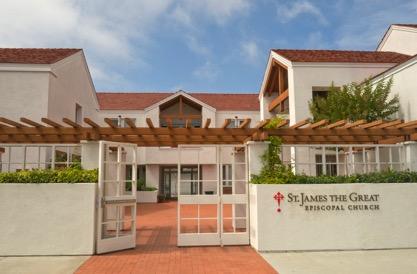From the OC Register
A panel of officials from the national Episcopal Church issued an emergency order Saturday, June 17, prohibiting J. Jon Bruno, bishop of the Episcopal Diocese of Los Angeles, from selling a piece of prime real estate in Newport Beach, previously occupied by congregants of St. James the Great Episcopal Church.
The sanction came after members of the hearing panel, who presided over misconduct charges against Bruno in March, said they have not received a clear response from the diocese regarding whether the property at 3209 Via Lido has been sold or if the diocese has entered into a sales agreement for the property.
“The Hearing Panel of the national Episcopal Church has ordered Bishop Jon Bruno of Los Angeles to not take any action to sell St. James the Great Episcopal Church in Newport Beach.
The action comes in reponse to evidence the property was secretly placed in escrow this month. That evidence was given late last week to national Episcopal officials, who alerted the Hearing Panel. When the chair of the Panel inquired of the Bishop’s attorney about the apparent sale, the attorney objected to the question and did not answer.” (via email)
The Hearing Panel’s order:
IN THE TITLE IV DISCIPLINARY MATTER INVOLVING THE
RT. REV. JON BRUNO, RESPONDENT
IMPOSITION OF SANCTIONS ON THE RESPONDENT
By emails dated June 9 and 14, 2017 copied to the President of the Hearing Panel, one of the Complainants made a colorable claim that the Respondent may have entered into a contract to sell the St. James property. By email dated June 14, 2017, legal counsel to the Hearing Panel, acting for the President, circulated the Complainant’s emails to counsel for the Respondent, the Church Attorney and the members of the Hearing Panel, and directed that counsel express their views on the matters referred to in the emails from the Complainant by 5:00 p.m. Eastern Time on June 15, 2017, including the exact status and related documentation of the alleged sales contract.
Both counsel submitted timely responses. The Respondent’s counsel raised several objections, but did not address the substance of the Complainant’s allegation that there is a pending sale, or furnish any documentation. The Church Attorney stated that the Respondent did not comply with the Hearing Panel’s directive and observed that Respondent’s Counsel either knows or could learn the exact status of any pending sale from the Respondent. The Church Attorney also argued that if it is true that the Respondent has entered into a sales agreement that is an act of defiance and should be enjoined.
The Hearing Panel has considered these matters and takes them extremely seriously. If the Respondent has entered into a contract to sell, or sold, the St. James property before the Hearing Panel has decided the case, that conduct is disruptive, dilatory and otherwise contrary to the integrity of this proceeding. The same applies to his failure to supply information concerning the alleged sale. Canon IV.13.9(a).
Acting under the authority of Canon IV.13.9(a), the Hearing Panel accordingly imposes the following sanctions on the Respondent, acting individually, or as Bishop Diocesan, or as Corp Sole, or in any other capacity: Respondent is prohibited from selling or conveying or contracting to sell or convey the St. James property until further order of the Hearing Panel.
This Imposition of Sanctions is effective immediately. June 17, 2017
The Rt. Rev. Herman Hollerith IV President, for the Hearing Panel
Addendum: ENS has Bishop accused of trying again to sell church at heart of pending disciplinary case.
One of the complainants in the case contacted the Hearing Panel earlier this month with what is known as a “colorable” or plausible legal claim that Bruno may have entered into another contract to sell the St. James property, according to the panel’s notice. Bruno then refused to confirm or deny the alleged contract.
The Hearing Panel said that if Bruno has tried to sell the church property, or has sold it, before the panel decided the original case against him that conduct is “disruptive, dilatory and otherwise contrary to the integrity of this proceeding.” The same is true of his failure to give the panel the information it asked for about the accusations, the notice said.

